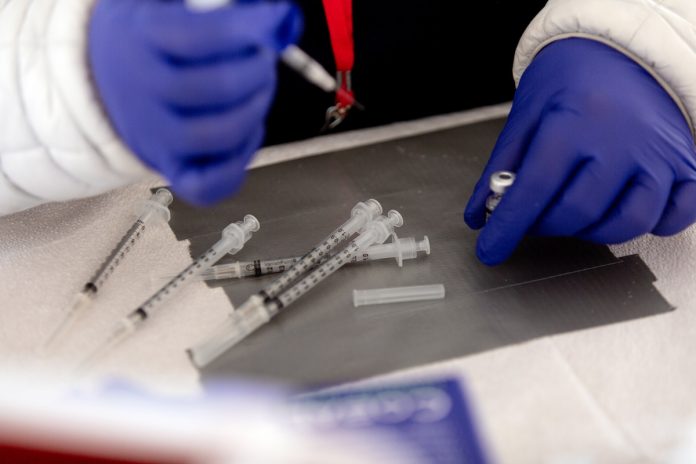
SANTA CRUZ COUNTY—County health officials announced Tuesday that seasonal cases of Respiratory Syncytial Virus (RSV) and the flu have been reported earlier than usual this year, and are on the rise, causing increased hospitalizations for children.
Covid-19 is also experiencing an uptick locally and in California, they said, and the combination of the three is generating concern over safeguarding the local and State healthcare system as the holiday season approaches.
“As we navigate through respiratory illness season, it’s important to continue basic prevention methods like vaccination, frequent hand washing, and wearing a mask,” said Dr. Cal Gordon, Deputy
Health Officer for the County of Santa Cruz. “These same tools we learned from Covid continue to be the best we have to get through the respiratory virus season together.”
Santa Cruz County Public Health, in alignment with California Department of Public Health (CDPH), is encouraging all residents to protect themselves and others from severe illness and hospitalization by doing the following:
1. Get vaccinated, boosted (and treated, if needed)
The flu vaccine and updated Covid-19 booster continue to be the best defense to limit severe illness and death—and you can get both at the same time. If you test positive for Covid and are at higher risk of severe illness, contact your doctor or go to a test-to-treat site immediately to seek treatment. Treatments work best when started right after symptoms begin.
2. Stay home if you’re sick
It’s crucial to stay home if you are feeling ill. Avoid close contact with others to protect them and take the time you need to heal. This is especially important for the flu, RSV and Covid, which can lead to more severe illness.
3. Avoid going to the ER for mild to moderate illness
People with severe symptoms such as significant difficulty breathing, intense chest pain, severe weakness, or an elevated temperature that persists for days are among those who should consider seeking emergency medical care for their condition. Individuals should not visit the emergency department if the symptoms of their illness are mild to moderate and should instead consult an outpatient primary care provider.
4. Test before you gather
Take a rapid at-home Covid-19 test before gathering with others, especially if you have family or friends who are at risk for serious illness.
5. Wear a mask
There is no vaccine for RSV, so wearing a mask can significantly slow the spread and protect babies and young children who do not yet have immunity and are too young to mask. Masking in indoor public places is a good way to limit the spread of germs.
6. Wash your hands
Frequent handwashing, with soap and warm water-for at least 20 seconds, is an easy and very effective way to prevent getting sick and spreading germs.
7. Cover your cough or sneeze
Remember to cough or sneeze into your elbow, your arm, or a disposable tissue to help prevent the spread of winter viruses. Just make sure to sanitize or wash your hands and dispose of your tissue after.
To schedule a flu and Covid-19 vaccine appointment, visit myturn.ca.gov. For information call (831) 454-4242 between 8am and 5pm, Monday-Friday.











Brought to you by Pfizer!